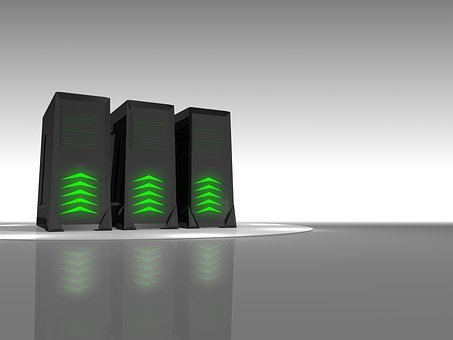You don’t need to buy tons of tech to run a small business. In fact, having access to the cloud means you can be a tech minimalist with one decent device!
But what exactly is the difference between cloud storage vs cloud computing? Which is the best choice for you?
Below is a short summary to help explain which option may be better for your business. If you need more details, you might wish to browse an IT company’s website for more in-depth information.
The Benefits and Risks of Cloud Storage
Cloud storage has many benefits, but also quite a few drawbacks.
By far and large, the biggest risk to keeping your data in the cloud is data hacking and theft. Your service provider must ensure they provide the security of a safe cloud platform.
On the other hand, the most useful aspect of cloud storage is the safety of not having a physical hard drive or server in your own basement that could get damaged, lost, or even destroyed. If you only have your data stored on devices at home, you’re taking full responsibility for it. Backing up into the cloud will offer you some peace of mind if your data is irreplaceable.
Should you use cloud storage? To an extent, many people do already through extra storage on their iPhone/iPad, Google, OneDrive, and so on. To make the best choice, you should weigh the difference between buying a hard drive or investing in extra cloud storage, then decide which suits your lifestyle better.
What is Cloud Computing?
Cloud computing is different from cloud storage because you’re not only using the cloud to store your valuable data, you’re using it to run your business.
Instead of buying software programs you download onto your computer systems, you pay for subscriptions to run the programs you need from the cloud.
Before the cloud existed, we had to buy the programs we needed, install them onto our computers, and buy updates when we needed to upgrade. Using subscription/cloud-based services means you’ll receive the updates as soon as they’re released, instantaneously. No installation required!
The Benefits and Risks of Cloud Computing
When you operate your business using cloud computing, you have the option to work online or offline. You can download tools you need from the web and store them on your computer, if you wish. When you go back online you can save and receive your updates.
Using web-based applications at home isn’t quite the same. The latter can only be used when the internet is running. When you choose cloud computing, you can download what you need and work offline.
The downsides of cloud computing are similar to those of cloud storage. Your data could get stolen, and downtime by your cloud computing provider isn’t unheard of.
Can Cloud Computing Enhance Your Business?
Yes!
The main reason is because cloud computing specialists hold all the programs and applications you could ever need. It’s like shopping through a catalogue and getting everything from one provider.
The seamlessness of such provisions allows you to get on with running your business instead of worrying about its IT infrastructure. By using cloud computing, you may also take advantage of an expert team who can advise you on which apps or programs are best to use for your business (if you’re not certain yourself).
However, end user policies are in place to prevent you from doing certain things with their products and services. If you stop paying for the service, you won’t be able to access the services from your cloud system provider.
Think of when Microsoft started allowing annual and monthly subscriptions. In the past, you would have had to buy the Office program, then download and run it from home. Nowadays, you can go online and order your product, pay instantly and receive access to it immediately. As long as you continue paying your subscription fee, you can access the product with all its features.
Cloud Storage vs. Cloud Computing
Is the difference between the two a little clearer now? The former allows you to simply store your data in the cloud, while the latter allows you to operate your business and use applications through the cloud.
Keeping safe means using a trusted provider, and perhaps separating your applications across different cloud platforms to ensure no downtime occurs.
Companies run the risk of their products being illegally copied and distributed when they sell hard copies of their software. By having a subscription only service, they can ensure their products keys only go to those who pay for them.
Using cloud computing means your business is keeping up with tech advances, and not having to buy new programs or applications on an annual basis. Without these updates, keep in mind you could be exposing yourself to security issues. The older the system, the weaker it is, thus easier for hackers to break your protection walls.
Cloud Computing and the Future
We’re in the early days of cloud computing and cloud storage. Often, when you join a company that offers both, you might find yourself locked into your agreement with them. In the future, when cloud architecture has developed further, switching providers may be as seamless as turning a TV on or off.
It’s up to the end user to find a service that best suits their business. Using an IT service provider to help you decide if cloud computing is right for you will ensure you’re taking advantage of modern tech without paying for unnecessary products or services.
When in doubt, consult an expert. Your business is worth the investment, and the peace of mind can only help the end user to achieve their business goals, whether that’s having data stored somewhere safely or computing done through the cloud.


